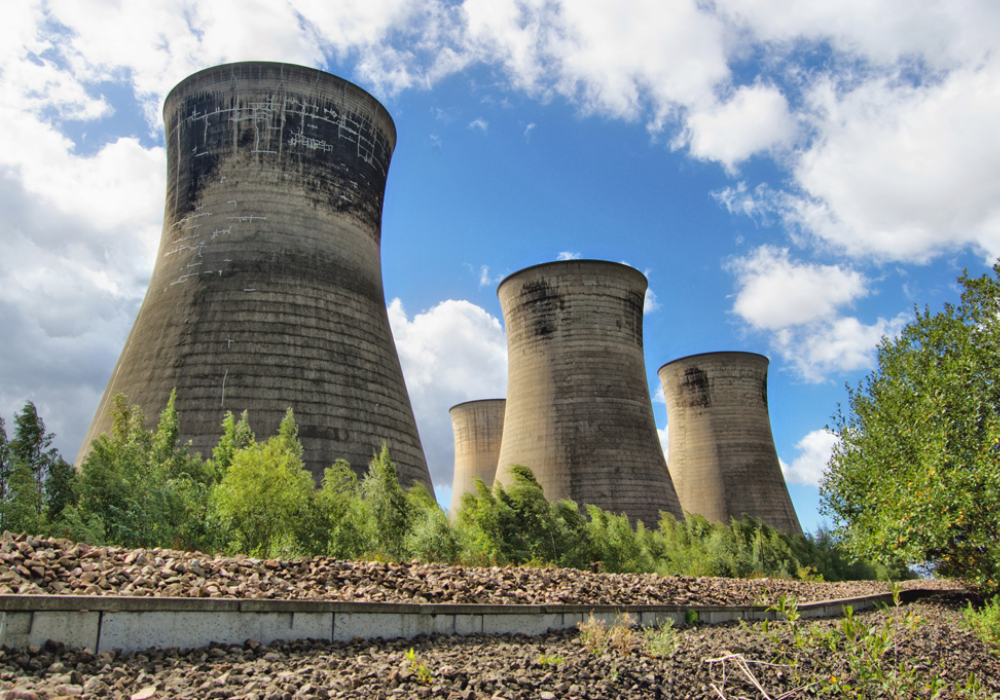
The UK’s carbon emissions fell by 29% over the past decade – but it looks set to miss out on its next round of targets.
Research by climate analyst Carbon Brief shows Britain has adopted a stricter approach towards high-polluting fossil fuels, after coal has been replaced by lower demand and renewables during the past 10 years.
As the country looks to phase out the fuel by 2025, the data shows coal emissions alone fell by 28% in 2019 – helping the UK reduce its CO2 emissions to 354 million tonnes.
While it has met its first two carbon budget targets and is on course to surpass the next, experts believe a number of factors could lead to it missing out on the next two goals.
Carbon Brief’s policy editor Dr Simon Evans said the emission cuts over the past decade have “overwhelmingly come from the power sector” and “contrary to much public perception, gas power has also fallen over the past decade”.
“The UK has cut emissions faster than any other major economy over the past decade but will need to do the same again – or more – if it is to meet its climate goals for 2030 and beyond,” he added.
“Whereas cuts so far have been largely invisible to the general public, continued progress is likely to mean changes that people can see directly, from the cars they drive to the way they heat their homes.”
Why the UK is to miss its next carbon emissions targets
Over the past decade, emissions from coal have fallen by 80% while those from gas are down 20% and oil by 6%.
Falling coal emissions accounted for around three-fifths of the overall reduction in the UK’s CO2 output over the past 10 years, with gas accounting for another third and oil making up the remainder.
Across that period, Carbon Brief claims the largest contributor to falling emissions has been improvements in energy intensity, which is the amount of energy needed to produce each unit of GDP. That has helped the country’s GDP rise by 18% since 2010.
Its emissions have fallen every year for the past seven years, marking the longest run of continuous reductions on record and bringing the total to its lowest level since 1888 – excluding years when general strikes have taken place.

Since 2008, the UK government has set five-yearly carbon budgets that are set to run until 2032 – alongside the goal of reaching net-zero greenhouse gas emissions by 2050.
It met the first and second budgets ending in 2012 and 2017, which aimed for 25% and 31% reductions respectively in greenhouse gas emissions, compared to 1990 levels.
The current budget is set to end in 2022, with Britain targeting a 37% cut in CO2.
As of 2018, the UK’s emissions were 44% below 1990 levels, meaning it is on course to outperform its ambition for the third budget.
But according to the Committee on Climate Change (CCC), an independent advisor to the UK Parliament, Britain is set to miss its next carbon budget after the government has missed key milestones, failed to reduce emissions in agriculture and shortfalls for targets against planting trees.
The fourth target is a 51% reduction in emissions by 2027, while the final carbon budget is aiming for a 57% decrease by 2032 – but the CCC believes both targets will not be met as progress in cutting emissions is expected to slow over the coming years.
On the back of this, the government has brought forward its ban on fossil fuel cars to 2035, announced a new strategy on decarbonising heat and additional funds to support raise building energy efficiency.
Energy UK’s response to the decrease in carbon emissions
Responding to Carbon Brief’s data, Energy UK’s interim CEO Audrey Gallacher said the decrease in emissions over the past decade “shows how quickly the energy sector has been moving to low carbon generation – and importantly this transition has been partnered by economic growth”.
“But with less than 30 years before the net-zero target, the transformation actually needs to go further and faster than this,” she added.
“This is not just in power generation but in other areas like heating and transport as well as energy efficiency, which this research shows has made the major contribution to reducing emissions since 2010.
“That’s why the forthcoming Budget and White Paper need to show widespread ambition and action across these areas and unleash much more of the innovation and investment that has delivered these results over the past decade.”



